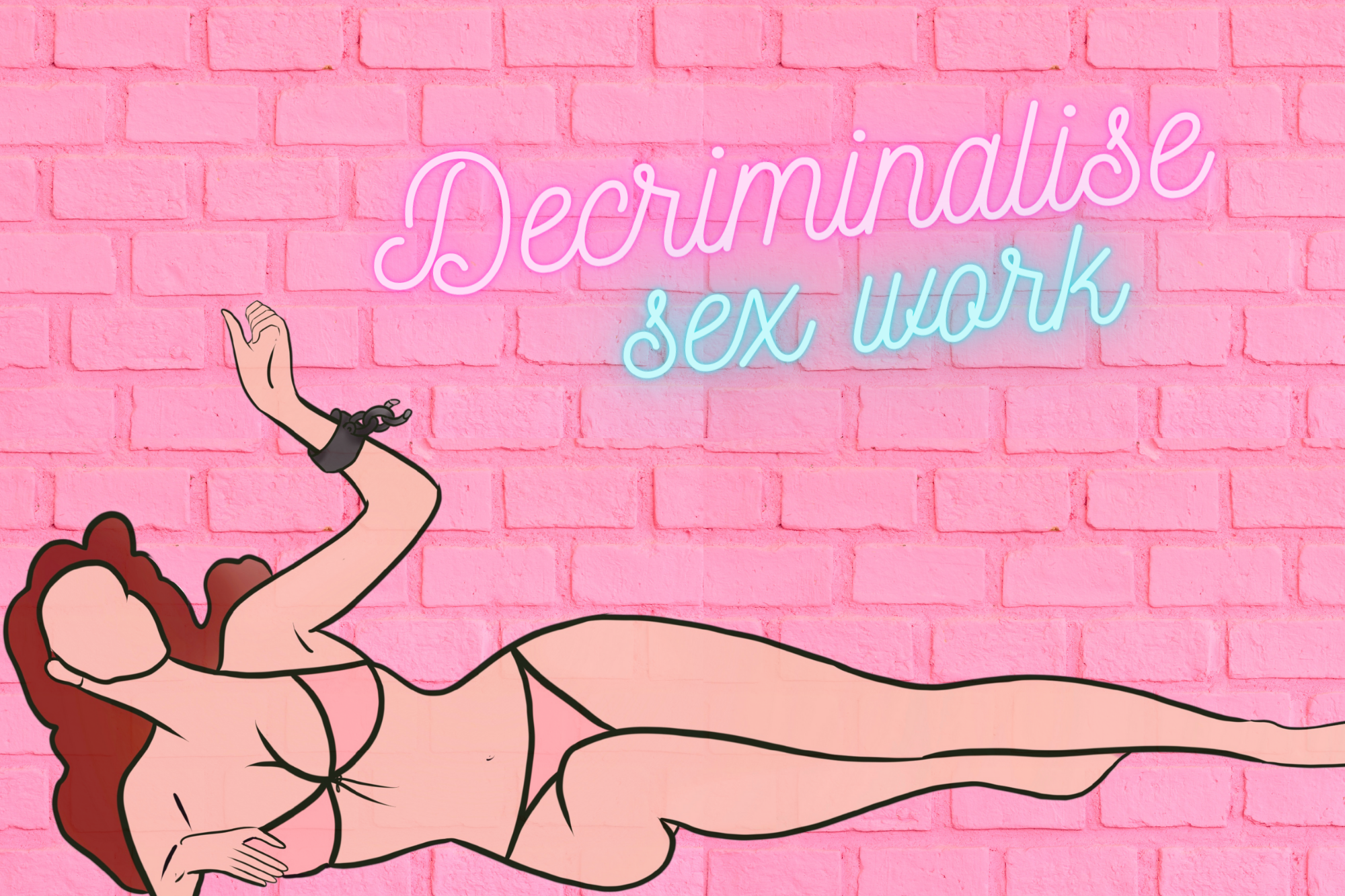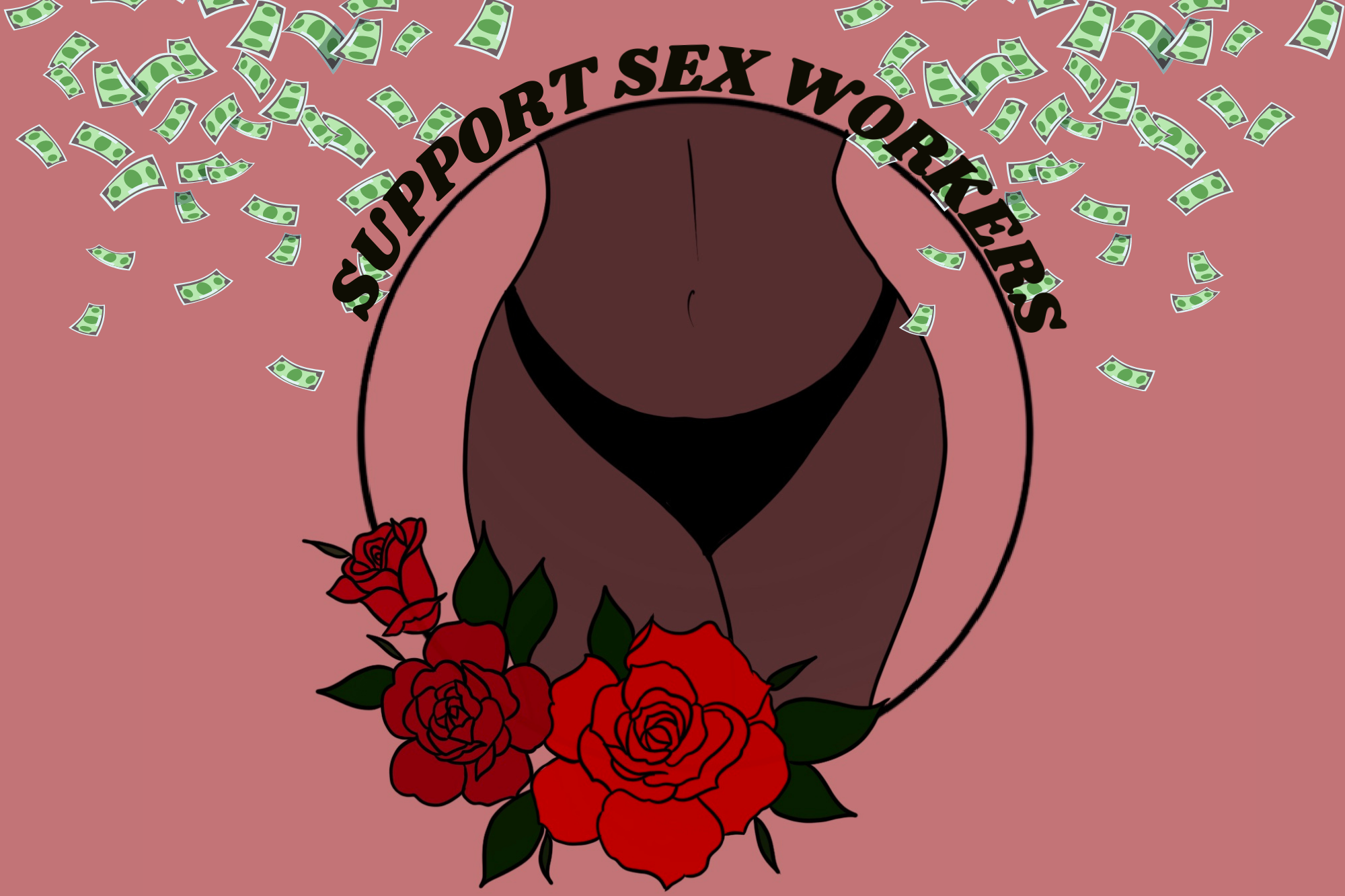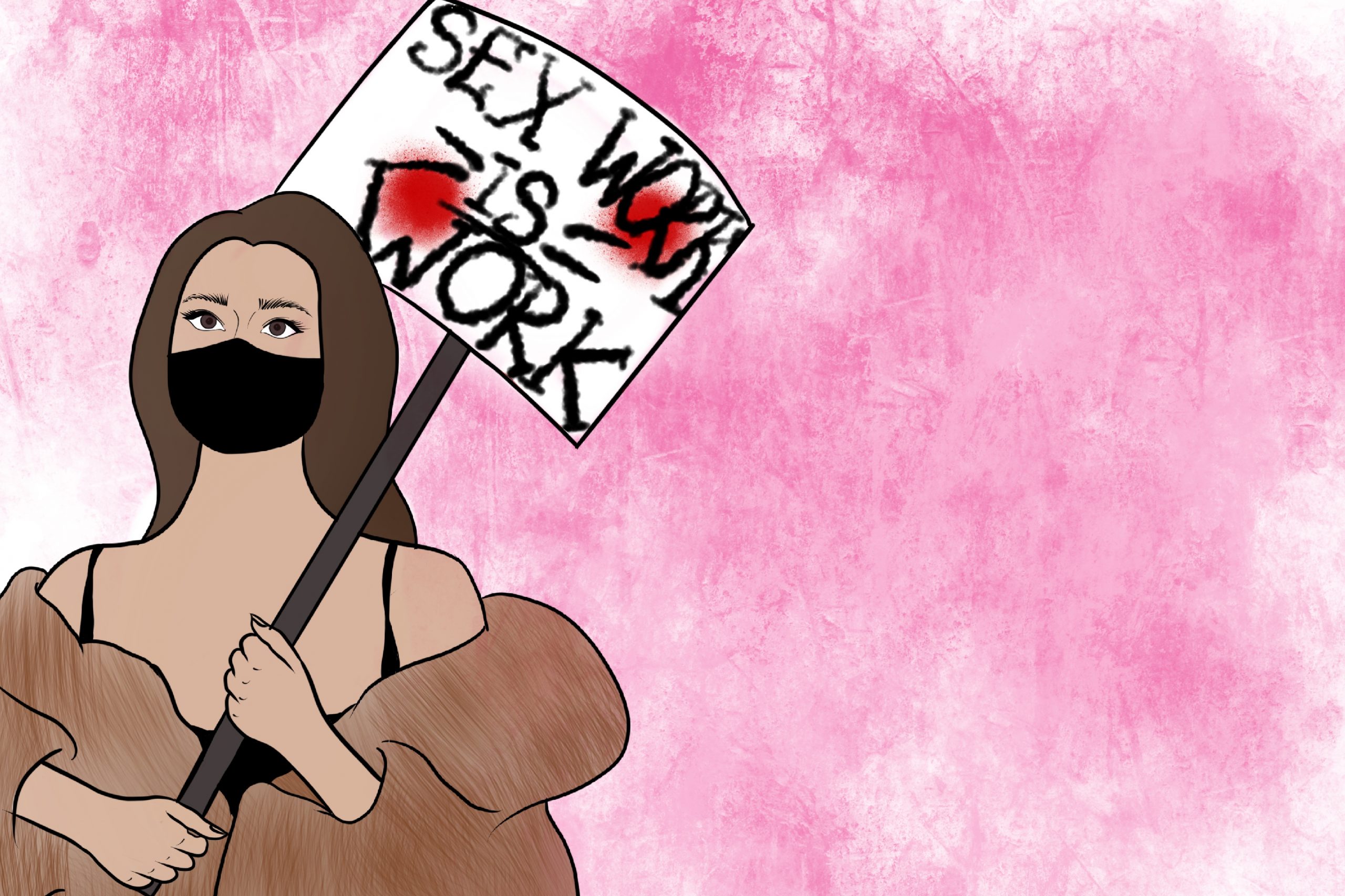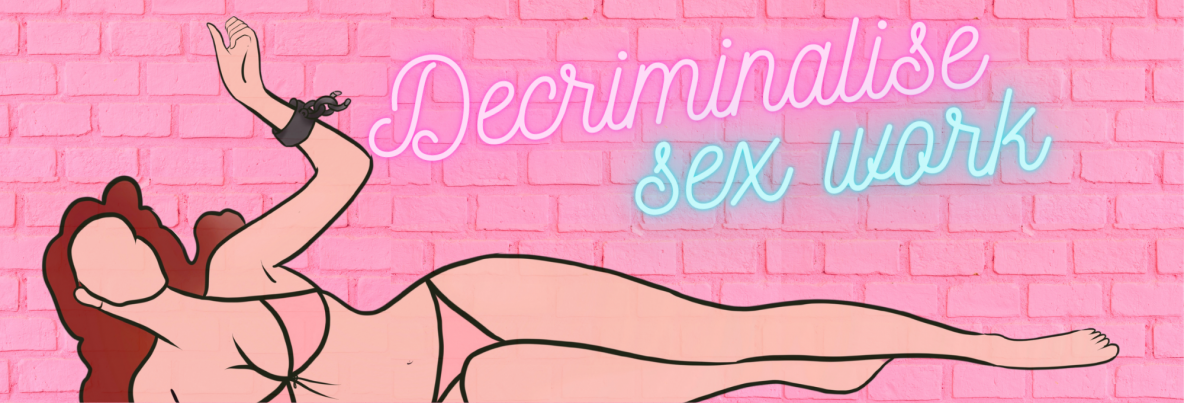Supporting sex workers during a pandemic
By Francesca Fiennes / 28 November 2020

Illustration by Melanie Petrovic
This quote rings eerily true upon listening to a recent Woman’s Hour discussing how sex workers are surviving during the pandemic. Much focus is on the clients (primarily men), and the supposed licentiousness of how anyone could sell sex.
This year will go down in history with the decline of physical and mental health, alongside social and economic fallout from the current COVID-19 pandemic. Measures were introduced in the UK to protect business with grants, furlough, and the infamous ‘Eat Out To Help Out’ scheme. It has been commonplace to hear of struggling individuals, conglomerates letting employees go en masse, and many young people graduating university with minimal options. These are the spoken traumas, but what about the previously forgotten? Sex work and sex workers are not a new phenomena. It is common for history to glamourise courtesans, paid mistresses, geishas, harems etc. (an often exoticised fare, problematic in itself). In the modern-day, the same nostalgic sentiments are not extended to the largely cis-gender female population who engage in it. A large proportion of the trans community also engage in sex work, amongst other marginalised communities.
This year, the impact of lockdowns on social movement and working activity has dramatically affected the sex worker community. Business sectors classified as more ‘legitimate’ or ‘palatable’, such as the arts and entertainment, have struggled to obtain government support and job security. Criminalised trades such as sex work are not considered in ‘Coronavirus Job Retention’. Some sex workers did venture out during the first lockdown to make ends meet - choices that are not made lightly. It must be noted that whilst people can get access to Universal Credit, this may not cover costs for most people or their families.
Oft a chasm-creating topic, much scoffing by society occurs over whether it is the selling of sex, or working having sex that is the most problematic. Fundamentally, time and time again sex workers are silenced, spoken over and for. Society often seeks a ‘saviour’ or ‘prohibition’ perspective: both of which neither listen to the demands sex workers have, nor eradicate the issues or paths that lead to sex work. As a non-sex worker I’m aiming to highlight the work of pro-sex workers rights activists, and hold space for the very real and life-threatening circumstances that sex workers suffer, often at the hands of a society that criminalises them. The erasure of sex workers from common discussion is even more prevalent during COVID-19.

Newsflash: it is possible to simultaneously support sex workers, advocate for worker's rights, and not want it to be a last resort for anyone.
As common for marginalised communities, society and its feminists seek to package sex workers into a palatable image - perhaps the higher-class escort, sugar baby, or OnlyFans creator. Such workers can be seen as actively choosing such work, perhaps engaging in less somatic sexual activity, and notably having the privilege to conduct their work in safe working conditions. The “she might start an OnlyFans” facade shades over the threatening conditions sex workers might face. Earlier this year, Bella Thorne, an American actress, promoted her new OF page on Instagram as ‘research’ for an upcoming film. Thorne set a new record amassing $1 million in one day for promised nude photos - which were then found to include lingerie, causing thousands of OF subscribers to ask for their $200 back. Shortly after, restrictions were introduced that capped tipping and reduced pay frequency, which affected many sex workers income.
Only Fans saw 3.5X the normal content creators sign up since March, suggesting that some sex workers might have been able to make up some lost income. Whilst using OF to sell pornographic imagery could be seen as more ‘ethical’ pornography as creators can set their own prices and work from home, the over-saturisation of the market and privacy issues remain highly concerning. As a rule of thumb, decriminalising activity tends to make it safer and embeds activities in support systems. In the UK technically you can legally sell sex, but working in the same space as someone else is illegal, as is working together, as is selling sex on the street. You can buy sex as long as workers are over 18, and as long as you believe no one was forced or coerced into doing so.
Regardless, many of these laws are still considered harmful for workers. Take a common situation where a sex worker might be assaulted in a flat where they are working with a buddy - do they call the police to protect themselves or risk their work status for a “brothel-keeping charge”? Complex webs of power, morality and safety weave their way around sex work in general, resulting in a non-universal legal framework surrounding sex work. Imagine this during a pandemic, where people can be fined for being in the wrong place at the wrong time (current fines are up to a maximum of £6,400).

Sex worker's rights activists advocate, like many radical leftists do, for safe workers rights. If we have to work to earn money and participate in capitalism, let alone put food on the table, we all deserve to have working conditions free from harassment, bodily harm and other violence.
Why might such hopes shift with the nature of the work? Many believe that acts such as sex should not be commodified - despite labour being monetised in other forms, such as construction, massaging, cleaning etc. Whilst some may be drawn to sex work’s lucrative nature, many are drawn to sex work as a last resort: whether this is people who lose work, can’t find work as a single parent, have a drug abuse issue, are a migrant, discrimination etc. All of these people deserve workers rights, enabling them to earn money safely and to lobby for change through unions. Beyond this, if people want sex work to end, clearer routes out of trade need to be presented to those who may turn to sex work.
Until this occurs, it would be futile to discuss whether sex work ‘should’ continue to exist. This could take generations, given that a) sex work has existed almost as long as we have been documenting the impact of sexuality on humanity and b) significant amounts of work would be needed to level inequalities where women, migrants, trans people etc. exist in political economies that presently offer little alternatives to sex work. Recent debates have sought to further criminalise the buying of sex and advertising of it online - such circumstances make it even more dangerous for people who need sex work to survive. In a pandemic, where employment opportunities are dwindling, lockdowns are enforced often last minute, with little consistency and a risky public health crisis, it is an even more unsafe time to be a sex worker. Supporting full decriminalisation of sex work to make it safer, freer of harassment and access to labour rights is the only way forward.
Decriminalise sex work – safety first! petition
Donate — SWARM Collective - they run a COVID hardship fund that was closed but they are still accepting funds
Art by
Words by
Share this article

